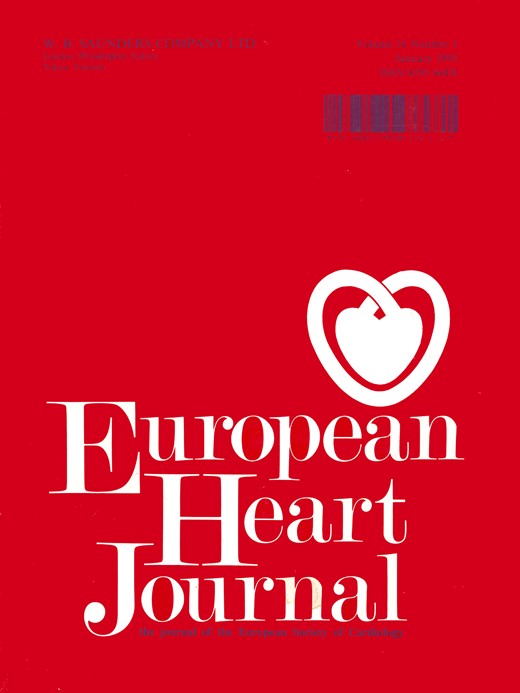-
Views
-
Cite
Cite
B. HEDBÄCK, J. PERK, P. WODLIN, Long-term reduction of cardiac mortality after myocardial infarction: 10-year results of a comprehensive rehabilitation programme, European Heart Journal, Volume 14, Issue 6, June 1993, Pages 831–835, https://doi.org/10.1093/eurheartj/14.6.831
Close - Share Icon Share
Abstract
The long-term outcome of different methods of post-MI care has been studied in two non-selected groups of MI patients: an intervention group (n = 147), participating in a cardiac rehabilitation (CR) programme, was compared to a reference group receiving standard care (n = 158). The CR programme included a post-MI clinic, physical training, information on smoking and diet, and psychological support.
After 5 years there was no difference in mortality (29.3 vs 31.6%), but the recurrence rate of non-fatal MI (17.3 vs 33.3% P <0.05) and of total cardiac events (39.5 vs 53.2%, P < 0.05) was lower in the intervention gro up, and more patients were still at work (51.8 vs 27.4% P < 0.01).
After 10 years there was a reduction in total (42.2 vs 57.6% P < 0.001) and cardiac mortality (36.7 vs 48.1% P < 0.001). Fewer patients in the intervention group suffered from non-fatal reinfarction (28.6 vs 39.9%, P < 0.001). Among those patients who had not yet reached the age of retirement more patients had resumed employment (58.6 vs 22.0% P < 0.05).
We conclude, that the secondary preventive effect of the programme has contributed to the higher rate of survival.





